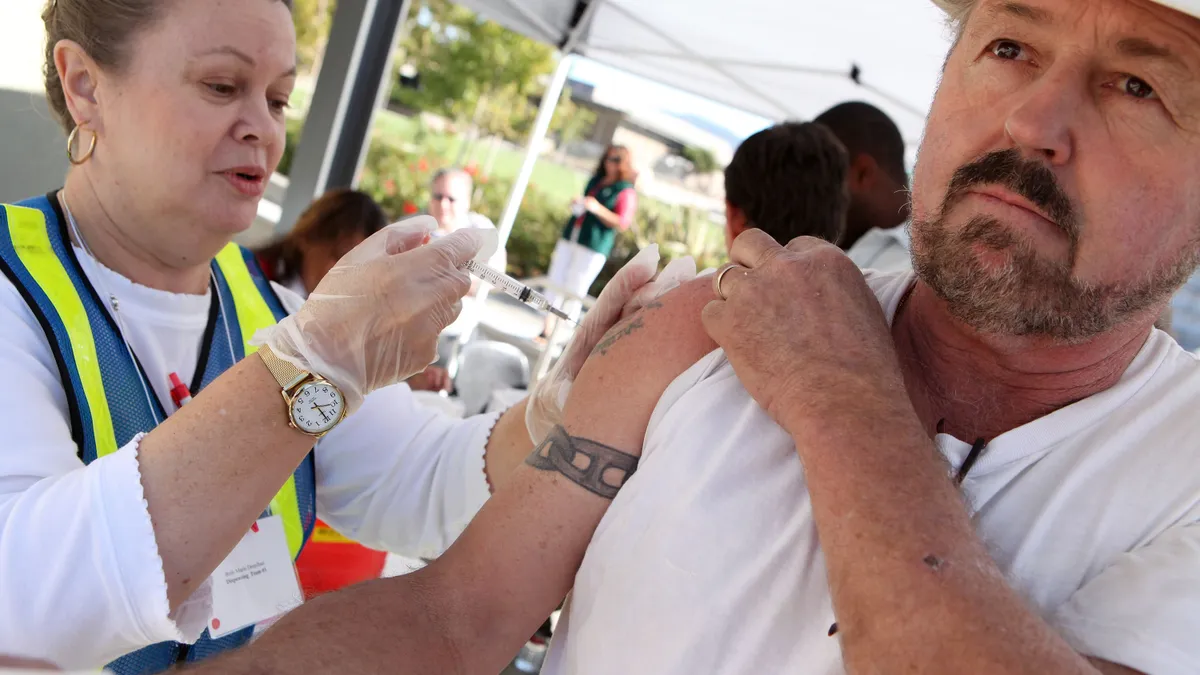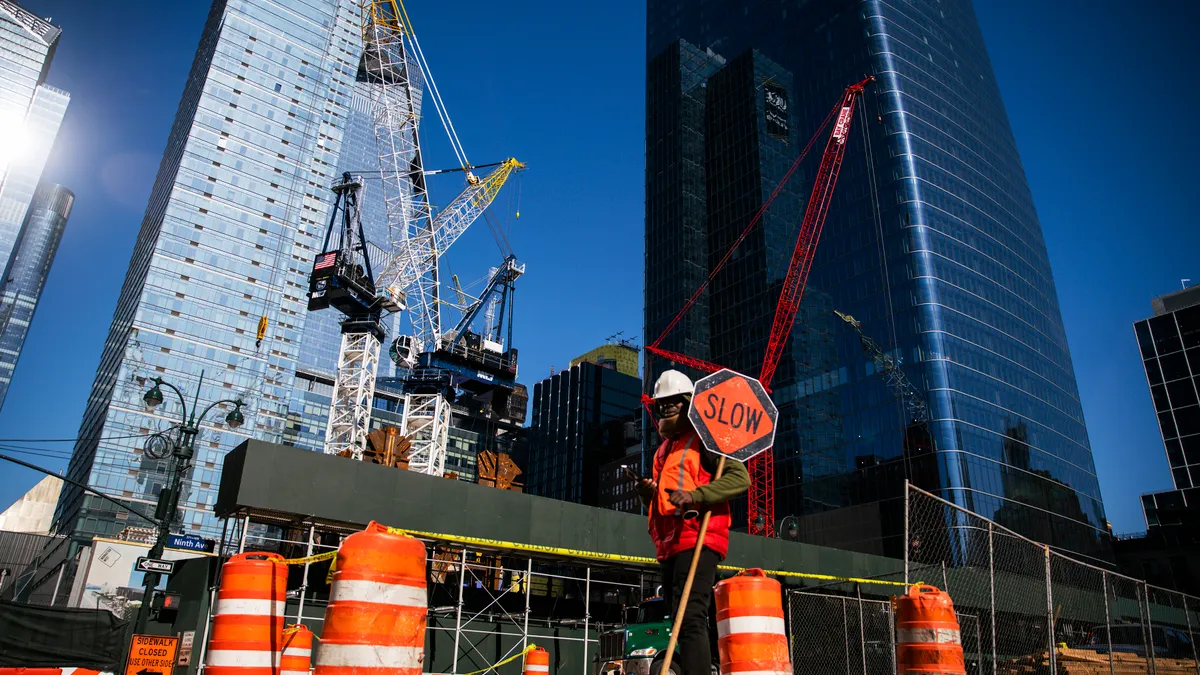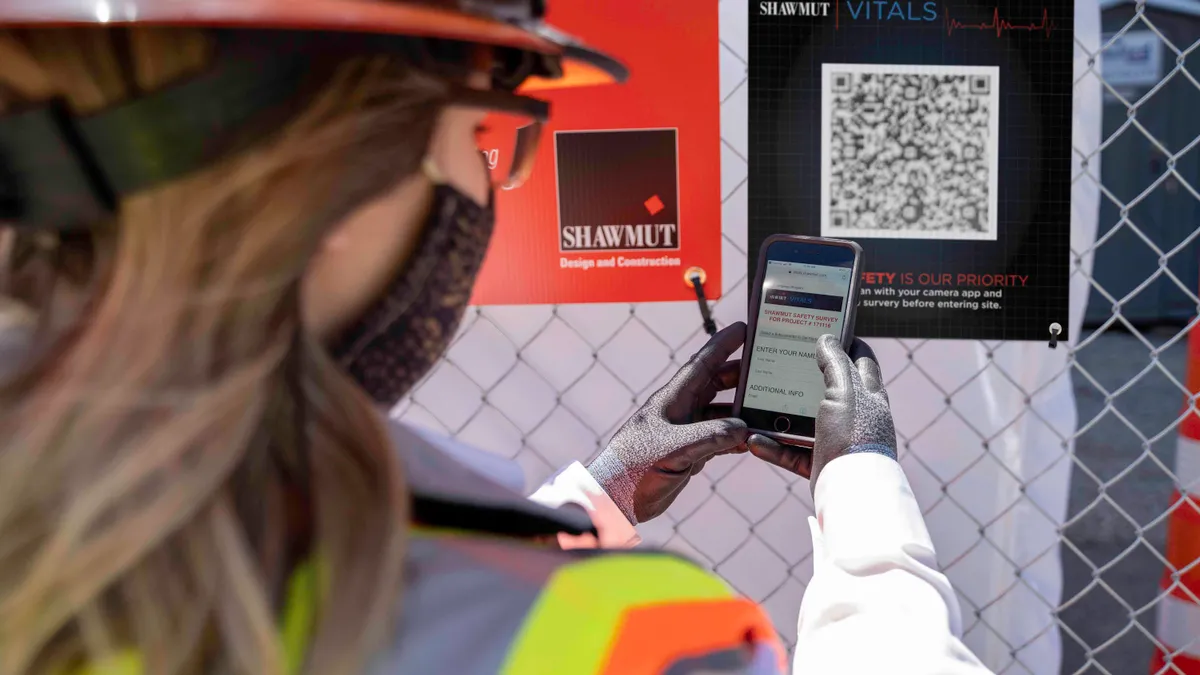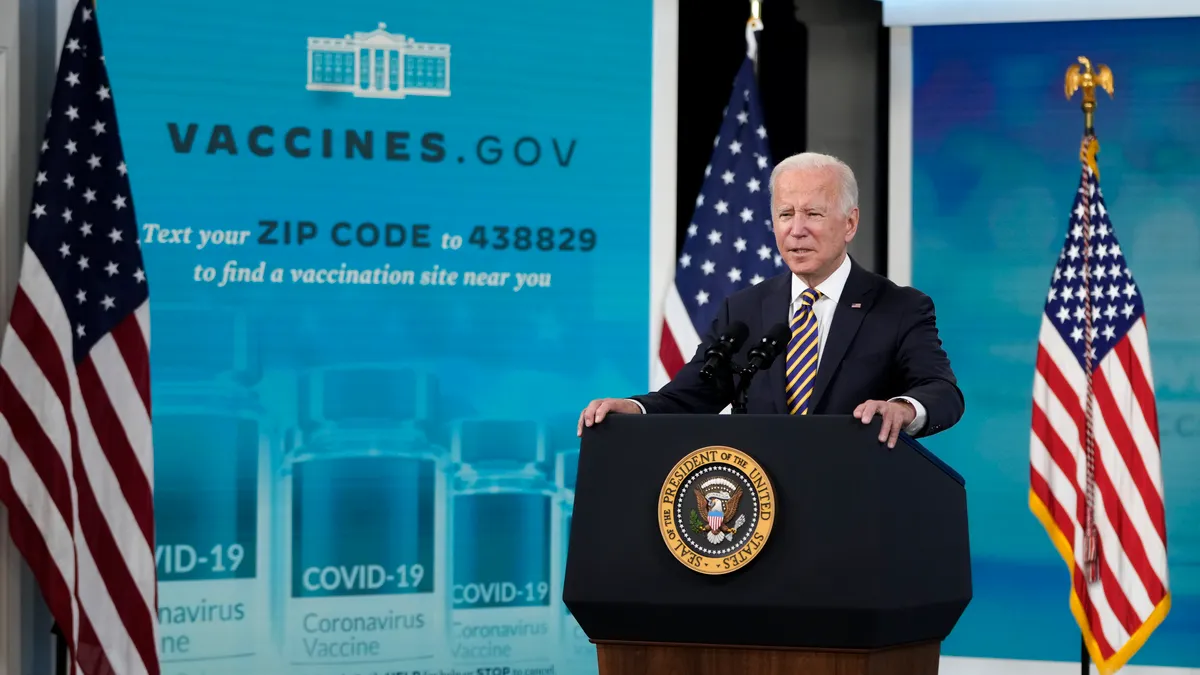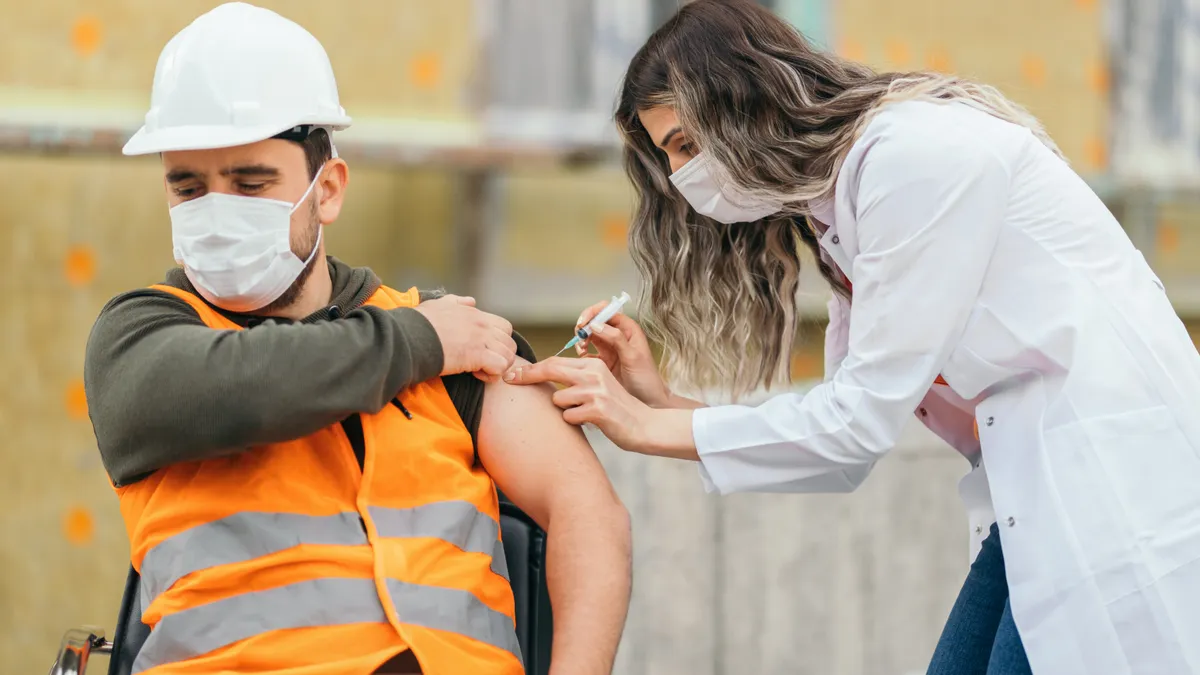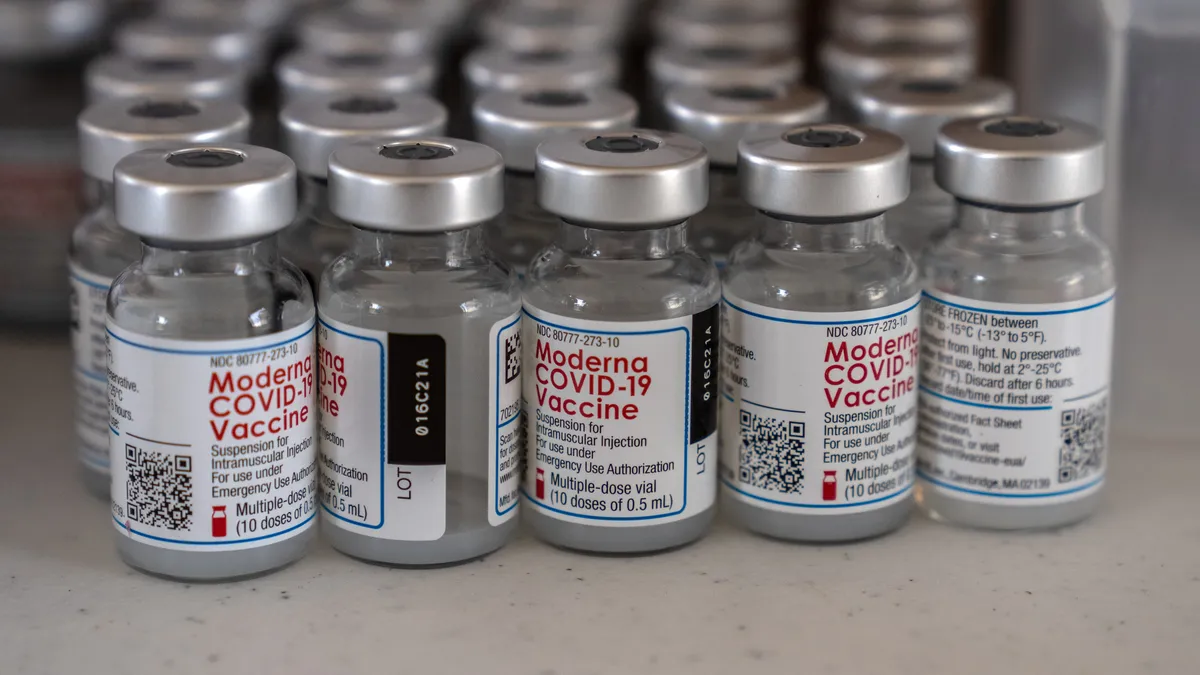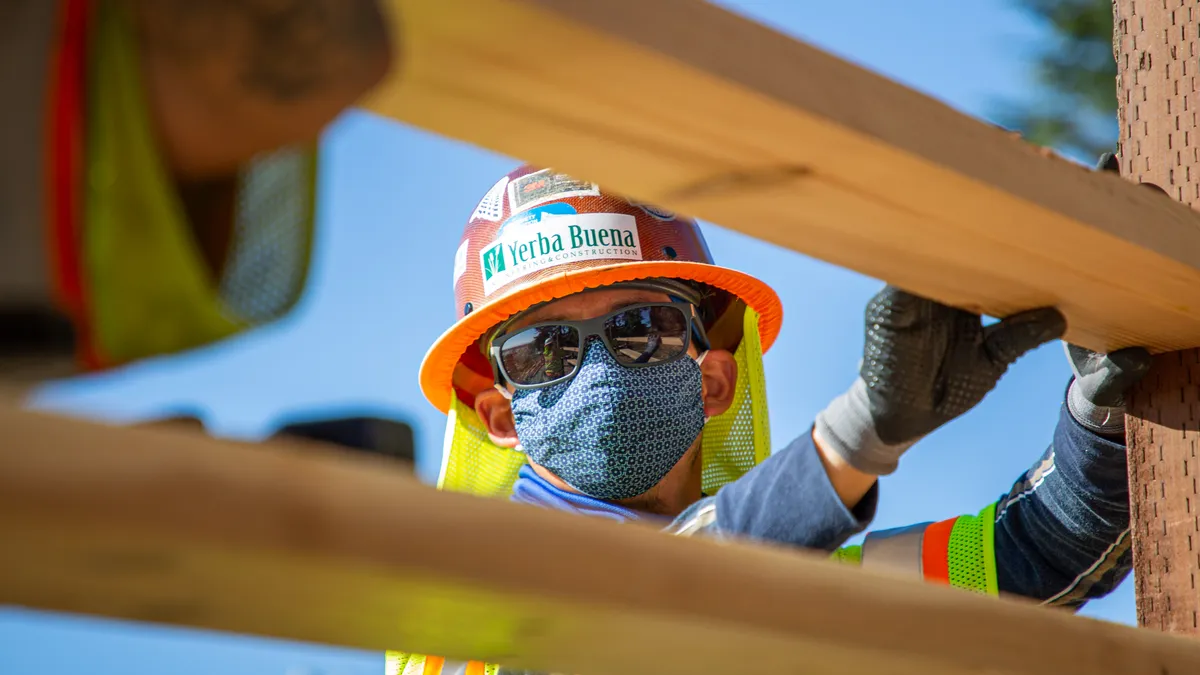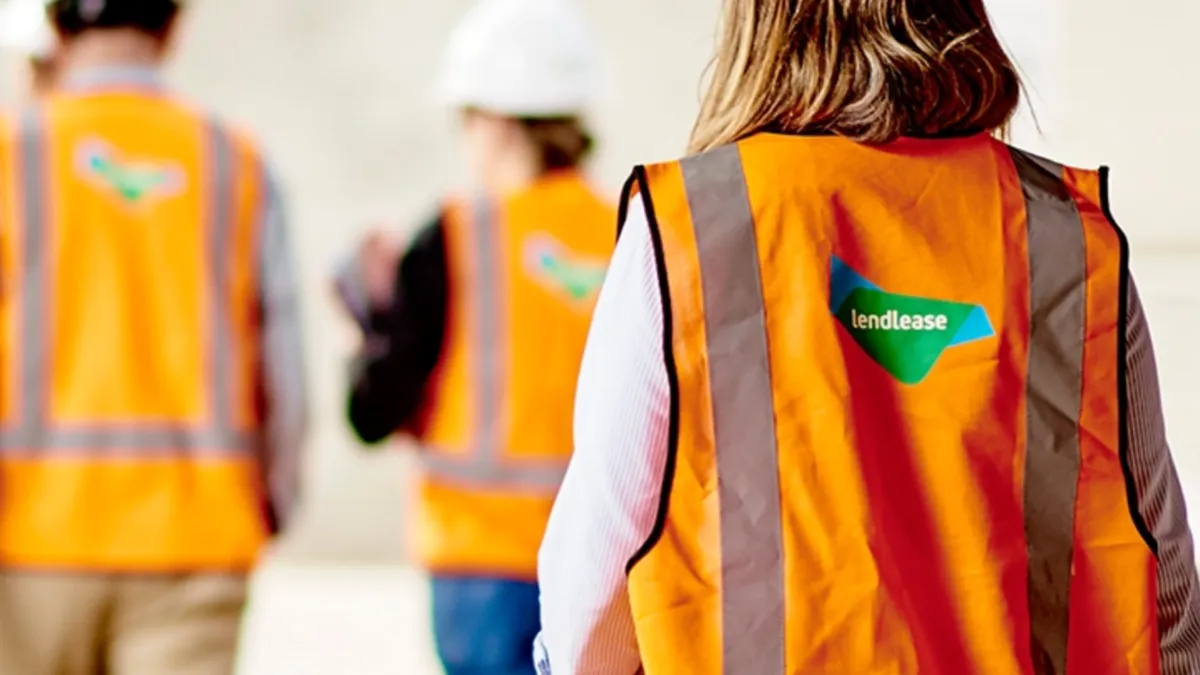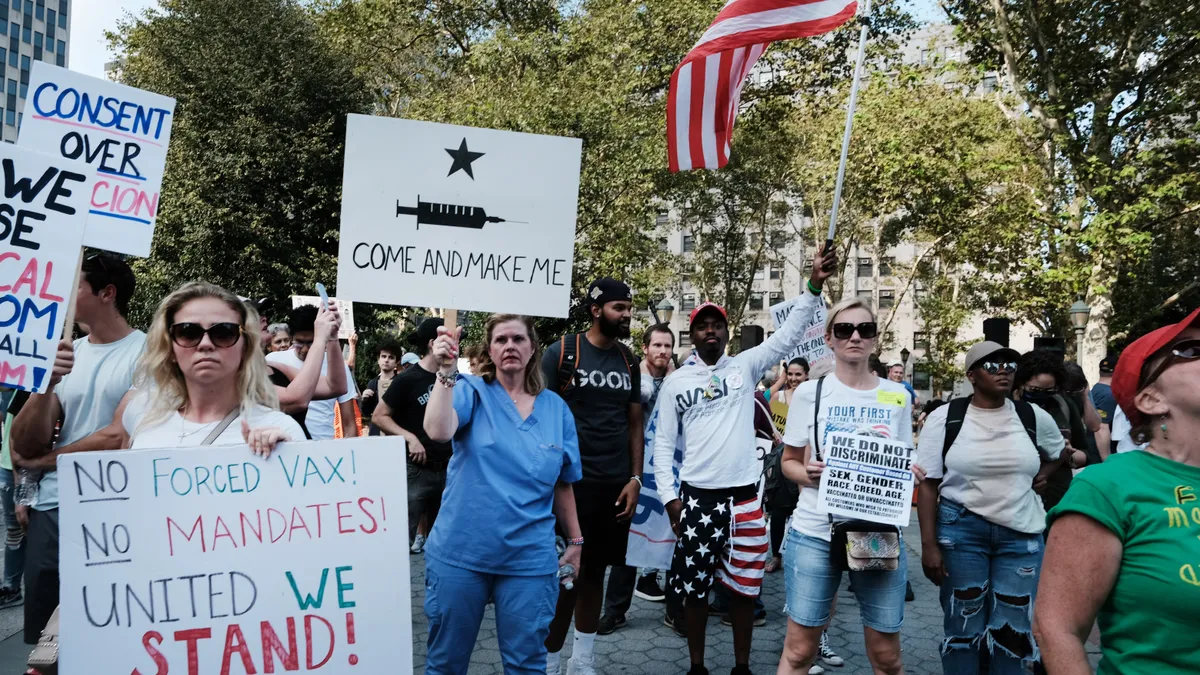Dive Brief:
- During the first year of the pandemic, more construction workers died of COVID-19 than those in any other industry in Colorado, according to new data from the Colorado Department of Public Health and Environment.
- There were 5,921 deaths due to COVID-19 for all industries and all ages in Colorado between March 1, 2020 and February 21, according to CDPHE. For people of working age, between 16 and 64 years, there were 919 deaths due to COVID-19. Of those, 111 were construction workers, or 12% of all working-age deaths.
- The report cautioned, however, that there wasn't a causal link between the numbers and the industry they were attributed to. For example, construction workers ages 16 to 64 accounted for 14% of all deaths, not just those attributed to COVID-19. That means the rate at which construction workers died of COVID-19 was slightly below their overall mortality rate.
Dive Insight:
By comparison, healthcare workers were overrepresented when it came to COVID-19 deaths. That industry represented 8.5% of all working-age COVID-19 deaths, but just 7.6% of deaths due to all causes. And since January, construction workplaces have accounted for between 8% and 9% of Colorado's COVID-19 outbreaks, far below inpatient healthcare, corrections and school settings in the state.
Still, the fact that construction workers in Colorado also represented the most deaths from all causes underlines both the size of the industry in the state, and just how dangerous physical construction work is.
The news comes as national COVID-19 case numbers surge due to the highly contagious delta variant, with the U.S. now recording more than 100,000 new cases a day, a benchmark not seen since February.
The fact that construction led Colorado's working-age COVID-19 deaths during the pandemic's first year adds yet another data point to a collection of state and local health metrics suggesting the industry's workers are more prone to contracting and dying of the virus than in other fields.
In November 2020, Construction Dive reported that construction accounted for the second or third highest rates of COVID-19 outbreaks by industry in Washington, Michigan, Utah and Nashville, Tennessee. At the same time, an academic study found that construction workers in Texas were five times more likely to be hospitalized with COVID-19 than workers in other industries.
Since construction was deemed essential early in the pandemic in most parts of the country, the fact that construction sites saw some outbreaks wasn't surprising, construction advocates have said. The physical aspects of constructing buildings and roads can't be done from behind a computer, and the fact that construction workers were reporting to the job when other industries weren't could have attributed to an overrepresentation of outbreaks, according to CDPHE.
"Where differences between the distribution of industries for COVID deaths and all deaths do appear, they seem to be among occupations and industries that were more active during the pandemic, and may have involved more close-quarters interactions or direct person-to-person contact," said Brian Spencer, a CDPHE spokesperson, in an email to Construction Dive.
In addition, construction trade groups have argued that the industry's traditional use of personal protective equipment and early adoption of social distancing and staggered shifts make it a model for how to safely return to work, and that workers who did contract COVID-19 often did so outside the job.
Still, whether contracted on the job or not, the data like the Colorado study points to continued challenges for the those in the field, as the construction industry is grappling with another area where its workers are overrepresented: those people who have elected to remain unvaccinated. In response to a survey by Carnegie Mellon University and the University of Pittsburgh, 46% of construction workers said they would probably or definitely choose not to get vaccinated if offered a COVID-19 vaccine.
As the federal government, the U.S. military and companies as varied as Facebook, United Airlines, Walmart and Tyson Foods have said they will require vaccines for workers to return to the office, construction faces another dilemma. While many construction companies thus far have encouraged vaccines, but made them voluntary for employees, some project owners are requiring that workers on their jobsites are fully vaccinated.



